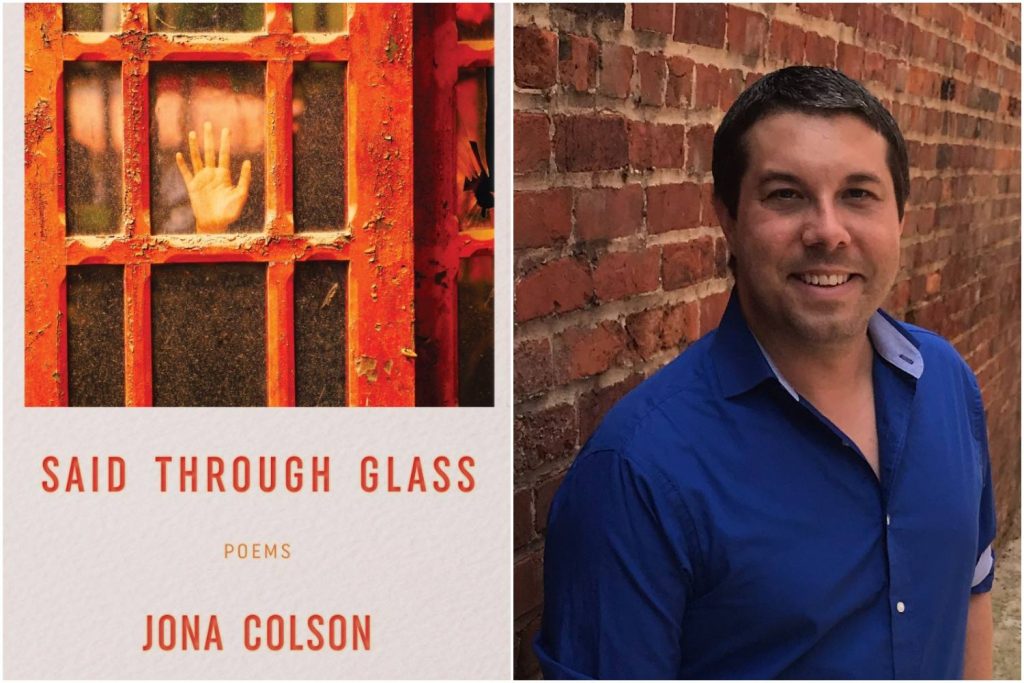Poet Jona Colson reads at the Pratt Wednesday, September 25, with Edgar Kunz and Tanya Olson.

Which writers inspire you?
There are so many. Marie Howe, Elizabeth Spires, Kaveh Akbar, Jericho Brown—I admire their craft and imagination. Many more.
What was the last book you loved?
There are two that really knocked me out. One was Less by Andrew Sean Greer and the other was Ocean Vuong’s On Earth We Are Briefly Gorgeous.
What’s the best advice about writing you’ve ever received?
That you will always have that first draft. If you are tentative about changes, or about going in an entirely new direction, try it. You will always have the first draft to return to; you can think of your first draft as a safety net.
When did you write your first poem, and what was it about?
I probably wrote what was considered a poem in high school. I don’t remember what it was about. I had a few early poems that dealt with sexuality and identity.
Do you have any rituals or practices that help you write?
I have a long list of phrases and starts and stops of poems. I often begin a poem by revisiting the document and developing longer phrases until it takes its own shape and content.
What’s one of your favorite lines of poetry or sentences from a poem?
Some of my favorite lines of poetry come from the poem “Lastness” in Galway Kinnell’s The Book of Nightmares. The narrator describes the birth of his son, and the first moment he held him:
I took him up in my hands and bent
over and smelled
the black, glistening fur
of his head, as empty space
must have bent
over the newborn planet
and smelled the grasslands and the ferns.
Imagine you get to take a writing workshop with any famous writer, living or dead. Whom do you pick?
Anne Sexton! I would be really curious to hear what she was like in person and in workshop.
Which poem by another poet do you most wish you had written yourself?
Anne Sexton’s “The Truth the Dead Know.” The poem has such an emotional truth combined with craft. A perfect poem.
How did you choose the title of your book?
My first book, which was published last year, is called Said Through Glass. This title comes from a line in the book. The original title was Everybody Has a Heart, Except Some People, but I changed it based on the editorial advice from the press, and thoughts from friends.
Which of your poems do you most enjoy reading to an audience, and why?
I enjoy reading my dialogue poems and the poems that have more of a narrative thread. I love reading the poem “Lesson,” which is a very short poem, and one of my favorites from the book. I sent this poem out to lots of journals, but it never got in; however, it reads so well and always garners a response from the audience.